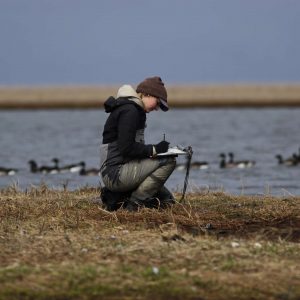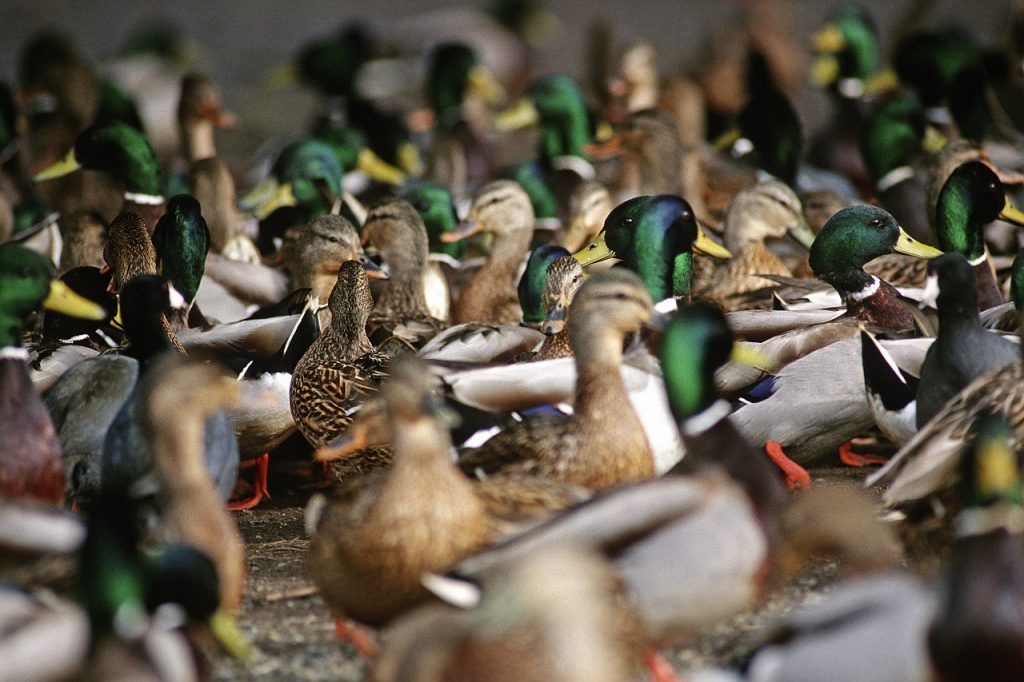The purpose of this fellowship is to provide financial assistance to deserving students conducting waterfowl or wetland research in North America.

The most recent winner of this award is Lindsay Carlson for her work at the University of Saskatchewan. Lindsay’s PhD project will examine how behaviour, habitat, and climate conditions across the annual cycle impact breeding success of Atlantic brant.
Atlantic brant have experienced significant habitat loss on both their wintering (mid-Atlantic coast) and staging grounds (James Bay coast) over the past 100 years and, in recent decades, their population has fluctuated dramatically, likely due to variation in the number of young produced. Lindsay will use high-resolution data from GPS-ACC transmitters to examine how Atlantic brant movements and behaviour, eelgrass and saltmarsh habitat quality, and climate and weather conditions in James Bay staging areas influence brant reproductive success. She is working closely with Cree land users to collect James Bay data, and with Cree research organizations, governments, and stakeholders to drive research questions. By discovering relationships between habitat use and brant reproductive success, Lindsay’s research will be useful for developing targeted conservation plans for the James Bay coast.
About the Fellowship
The competition is open to graduate students based at any North American university. It will be awarded based upon the following criteria:
- The qualifications of the applicant
- The scientific soundness of the student’s research proposal
- Originality and creativity in study design
- Expected contributions of the study to wetland or waterfowl ecology
- The importance of the proposed research to conservation
- Achievability of the work.
One award of up to $5,000 per year (Canadian funds) is available to provide personal or research support for the successful applicant. The award is renewable for up to two additional years for PhD students and once for students pursuing a Master’s degree, assuming annual approval of a satisfactory progress report and the need for continuing financial support.
For additional information on this fellowship, download the Graduate Fellowships Background document.
Past Fellowship Winners
2022: Kate Sinnott, MSc. Improving establishment and invasion resistance in the restoration of aquatic avian habitat, Utah State University
2019-2021: Casey Setash, PhD. Productivity of breeding waterfowl on working lands in a flood irrigated system, Colorado State University
2017-2018: Kelsey Navarre, MSc. Temporal covariation of demographic rates in lesser scaup (Aythya affinis) and management implications, Colorado State University.
2016: Megan Ross, MSc. Ecological factors affecting midcontinent light goose recruitment, University of Saskatchewan
2013-2015: Christopher Malachowski, PhD. Factors influencing habitat selection, movement patterns, and population dynamics of the engendered Hawaiian duck (Anas wyvilliana) on Kaua‘I, Oregon State University
2011-2012: Mark Wiltermuth, PhD. Interaction of land use and wet-dry cycles on invertebrate populations in prairie wetlands: Implications of waterbird habitat conservation, North Dakota State University
2008-2010: Anne Mini, PhD. Comparative foraging ecology of two sympatric specialized grazers, Dusky Canada and Cackling Geese in the Willamette Valley, Oregon, Oregon State University



